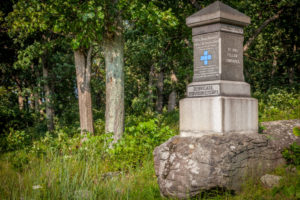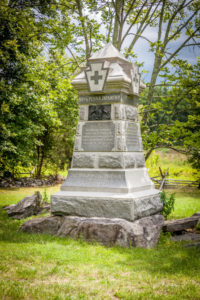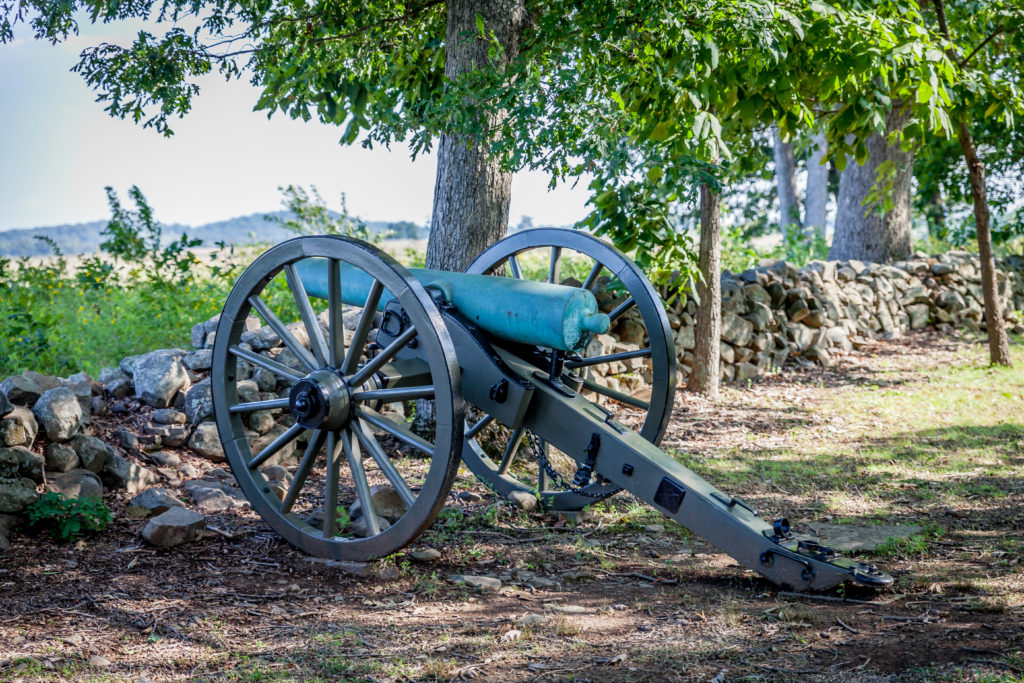A Visit to Gettysburg
Gettysburg, Pennsylvania is a town rich in history, with a name that stirs thoughts of the Civil War and attracts many to study the Battle of Gettysburg, which raged in the area from the 1st to the 3rd of July, 1863. With heritage listings and museums galore, Gettysburg is a vital notch in the historical traveler’s belt.
My wife and I recently took a weekend trip out to the area; a journey that was long overdue, having been away from the area since my preteen years. Since then, I have discovered a more personal connection to this part of our nation’s history. Through my research, I have been lucky enough to uncover the secrets of many relatives who fought in the Civil War. Among their stories are four of my great, great-grandfathers’ and one of my great, great, great-grandfather’s. Walking the battlefield on which so many of my relations fought for their country was a truly humbling experience.
While I will attempt to give the deserved justice to each of their stories over time, I will today focus on my great-great-grandfather, Jacob Frederick Loeble, and his military service. Jacob was born in Weinsberg, Württemberg, Germany on August 19, 1843. He arrived on American soil and travelled to Philadelphia, Pennsylvania on Jun’s e 20th, 1860, just shy of his 17th birthday. While I do know that he already had family in the area, it is unclear who he might have stayed with. His two older sisters, Catharina and Friederika, both arrived in Philadelphia at around this time, and so I suspect he found lodging with one of them.
Family lore suggests that Jacob “…got off the boat, was handed a gun, and pointed South”. However, we now know that it was not until September 15, 1861, just over a year after his arrival and less than one month after his 18th birthday, that he answered President Lincoln’s call for volunteers and enlisted in the Union army. He was a private in Company E of the 98th PA regiment, which was made up almost entirely of German speaking soldiers, with the exception of one Irish speaking company. On September 30, the 98th marched for Washington, DC, to fulfill their duty in the defense of the Capital. During this time they trained hard, drilling in preparation for what they would soon face on the battlefield. They remained until March 5, 1862, at which point they bravely headed South. Shortly thereafter, on May 5, 1862, they received their Baptism of Fire in the Battle of Williamsburg. The various campaigns the regiment fought in during their service can be found HERE.
Sometime during the spring of 1863, Jacob was promoted to Corporal. Not long after his promotion, on May 3, he received a gunshot wound to the left shoulder while fighting in the battle of Salem’s Church. He was admitted to the Depot Field Hospital near Washington, DC, on May 4th, transferred to Emory Hospital in Washington, DC on June 13th, and finally transferred to Saterlee General Hospital in Philadelphia, PA on June 23rd of the same year. He returned to duty in June, just prior to the famed Battle of Gettysburg, in which his regiment played a large role in securing Little Round Top for the Union army. Jacob survived the assault and I like to think that his efforts were vital to his regiment’s success.
On December 12, 1863, Jacob married Sophia Shneckenburger, a German immigrant also from Württemberg, with whom he would have 14 children. We do not know too much abut their family life, but their shared culture, hometown and large household suggests they cared deeply for one another.
In January, 1864, Jacob once again joined the 98th. His fighting action ended on July 11 of that year, when he was again shot in the left shoulder during the Battle at Fort Stevens; another pivotal battle in the defense of Washington, DC. This battle is particularly famous as the only battle of the Civil War that President Abraham Lincoln observed, and where he and his wife Mary briefly came under fire. Jacob was treated for his wounds at Mount Pleasant General Hospital in Washington, DC, until being transferred to a convalescent hospital in Beverly, NJ on August 16th. He was then discharged from the army on September 15, 1864, after completing his 3 years of duty. He applied for and received his US citizenship on October 26, 1864.

In 1885, a monument to Gettysburg was erected by survivors and friends of the regiment on the north side of Little Round Top. We are fortunate indeed to be able to view the monument today (see Figure 1). The inscription reads short and sweet, injected with a sense of candor by those who wrote it and those who continue to appreciate it. It remains connected to its true purpose; recording priceless information that may have otherwise been lost to time.
On September 11, 1889, Jacob was given the privilege of addressing a large crowd which included then President Benjamin Harrison, for the dedication of the 98th Regiment Infantry’s monument. A copy of his dedication speech, which is an interesting read, can be found HERE.

Later, in 1898, state funds became available, and a larger monument was erected near the John Weickert farmhouse (see Figure 2). The inscription on this monument reads as another recording of events. It is interesting to me that, during this time, the importance of verifying events endured by our men seemed to have jurisdiction over erected dedications, rather than expressions of emotion related to the battles themselves.
We also visited many of the monuments erected to Regiments for which other family members fought. Many of the stories we came across there were the same; filled with valor and told with great, and sometimes brutal, honesty. Our visit to Gettysburg and the new knowledge I have absorbed of my ancestor’s roles in the American Civil War have made me proud to be a result of the sacrifices they and their families made, and the role they had in shaping our nation’s great history.

About the Blog
This website was established to assist in the research the Sawn family name as well as the many surnames associated with it. It was set up to assist in the research of these families and contains related documents and photos collected over the year. The blog represents the stories and histories uncovered about our ancestors during this research.
Recent Comments
- Sabine J on The Sauer Family and Murphy’s Law
- Daniel Sawn on The Name’s the Same
- Cleo Sawn on Where are all the Sawns?
- Cleo Sawn on Who is in my family tree?
Categories
- Cultural and Regional Studies (3)
- Economic and Business History (1)
- Genealogy and Ancestry (7)
- Heritage and Legacy (1)
- Historical Context and Events (3)
- Historical Figures and Impact (2)
- Historical Records and Research (1)
- Military and War History (4)
- Monuments and Memorials (1)
- Personal Histories and Narratives (6)
- Research Techniques and Analysis (1)
- Tragedies and Accidents (3)
